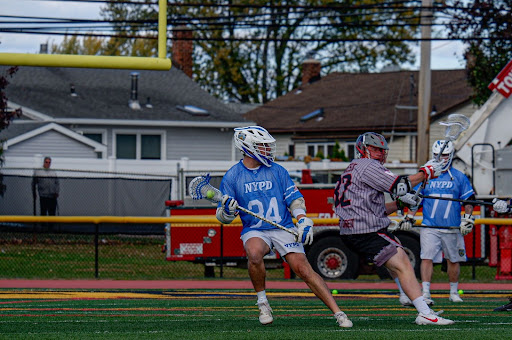2016 Election Predictions
February 29, 2016
This article was last updated on February 29, 2016 – one day before Super Tuesday.
Towards the beginning of election season, there were twenty-three popular candidates for the presidency of the United States of America. Now there are seven. The 2016 election has easily been the most bizarre and tradition-breaking election in U.S. history. The most popular candidates among excited voters are Donald Trump, a television personality, and Bernie Sanders, who regularly calls himself a democratic socialist (the word “socialist” is usually not taken well in America).
The election has followed a twisting, turning road that few people could have predicted, but I believe we have reached a point where we can predict how it will go from here. Before I delve into how I believe the election will go, I just want to take a look at what we have seen so far.
Ted Cruz was projected to win Iowa, and though Donald Trump overtook him for a bit, the Texas senator won the Hawkeye State in the end. Trump got second place, but Marco Rubio came surprisingly close to overcoming him, claiming a very close third place that no one saw coming.
A few people thought the Iowa loss would be Trump’s downfall, but those people were quickly proven wrong. New Hampshire was won by Donald Trump, as it was projected to be, and although it was speculated that Ted Cruz would offer a fight in South Carolina, Trump took the Palmetto State by more than ten percentage points ahead of a close Cruz and Rubio.
This is apparently enough to assume that Trump will be the nominee. Every single Republican that has ever won both the New Hampshire primary and the South Carolina has gone on to be the Republican nominee – including Ronald Reagan in 1980, George W. Bush in 2000, and John McCain in 2008. However, this election has broken several rules, so I do not believe this is enough evidence to assume Trump will be the nominee.
It is interesting to note, however, that Trump went on to win the Nevada caucus. He performed very well in a state with a very high Hispanic population – better than two Hispanic candidates, Cruz and especially Rubio, whose somewhat moderate demeanor led to high expectations in the state.
On the Democrat side, Hillary Clinton won Iowa by only 0.2 percentage points, an astoundingly close race with Bernie Sanders. Sanders won New Hampshire a week later by more than twenty percentage points. Analysts said the state’s proximity to Sanders’ home state of Vermont may have aided him.
The two Democrats went to the Nevada caucus next, where Clinton won by three points. This may seem small, but it is a much larger margin than her win in Iowa. Sanders was estimated to not do as well in Nevada due to lower support among minority voters compared to Clinton. This was cemented in the South Carolina primary. Clinton won by over fifty percentage points, and CNN noted something interesting – the higher the number of African-Americans in a county, the better Clinton did there.
We are now caught up to today, and fact will now be turning into speculation. Let’s start with the Republicans.
Many people are begging Ben Carson to terminate his campaign due to very low support. However, I can see why he chooses to wait until Super Tuesday until making the final decision. Not many polls have been held regularly in Super Tuesday lately – due to focus on Iowa, New Hampshire, South Carolina, and Nevada – and the most recent of these polls show Ben Carson with decent standing in states like Alabama. However, the most recent national poll from Alabama is from September 1, so it is likely things have changed since then. Once Carson does poorly on Super Tuesday, I believe he will quit – because he is also running out of money.
The next candidate likely to drop out is John Kasich, the Ohio governor well-liked in his own state. That is why it must seem like such a blow to him that in Ohio, Trump is leading in the polls. Kasich is very popular in his own state, so if Trump wins Ohio he is likely to end his campaign, but if for whatever reason he hangs on, he will absolutely quit if the Midwestern states he has been focusing his time, money, and energy on – such as Michigan – are won by Trump, or possibly Rubio.
Ted Cruz does not face the same problem as Kasich. He is fighting in states like Alabama, Tennessee, and Georgia, and leading in his home state of Texas, but Trump is close. A Trump win in Texas would destroy Cruz’s reputation, considering the two are bitter rivals. An underwhelming performance in most Super Tuesday states would probably make some expect Cruz to quit, and indeed he may, but he is also funded by super-PACs – committees that donate tens of millions of dollars to the candidate of their choice – so he may not go completely broke. Cruz has been a consistent second/third place in most polls – which isn’t as impressive now that there are only five Republicans still in the running. However, whatever supporters Carson has may jump on board for Cruz if and when their candidate-of-choice does drop out.
Rubio is treated as the main opposition to Trump, but the problem is that he has yet to win a primary or caucus – in New Hampshire, where he was projected to do excellently, he placed a shocking fifth. Although he has been vacuuming up Jeb Bush’s supporters, it has not given him the proper momentum (or Marcomentum, as he likes to call it) to truly soar in any states. Some polls have him ahead in Minnesota, but it’s entirely possible Trump could overcome him.
Speaking of Trump, he is doing very well for himself. Predicted for months to be collapsing or at least on the decline, his campaign has only increased in popularity. He may not have won Iowa as he predicted he would, but he won New Hampshire, South Carolina, and Nevada. John Kasich, fellow candidate, stated he believed Trump could possibly win all twelve states on Super Tuesday.
Now I will state what I predict will happen from Super Tuesday and into the distant future.
I believe that Donald Trump will win the states of Massachusetts and Vermont similarly to how he won its neighboring state of New Hampshire – by at least ten percentage points. He will also claim Georgia and Alabama, two states close to South Carolina where he is currently dueling with Ted Cruz. And he will also win Alaska, Virginia, Tennessee, and Oklahoma.
Ted Cruz will have an Iowa-style victory in Arkansas, where he bests Trump by a few points. Texas polls have been obnoxiously fickle – some show Cruz ahead by over fifteen points, while some only show him leading by a very small margin. I believe he will win the state, probably by somewhere from five to eight percentage points.
Rubio will win Minnesota by a hair – considering the latest poll shows him only two points ahead of Trump – but the state’s delegates won’t help him out very much, considering this would be his first state won.
This puts Trump winning nine states, Cruz winning two states (although one is the Lone Star State, which provides many delegates), and Rubio winning one state.
On the Democrat side, Super Tuesday is largely Clinton country. I project her to easily win the southern/southeastern states of Texas, Georgia, Alabama, Tennessee, Arkansas (where she served as the First Lady in the 1980s), and Virginia (where she is very close friends with the governor, Terry McAuliffe). She will also win Oklahoma, although it will be by a much closer margin. And although Sanders thought he had Massachusetts in the bag, I predict an Iowa-style win there. As in, Clinton will beat Sanders by a very small number of percentage points. It could potentially delve into decimals.
Speaking of Sanders, he isn’t as lucky. He will win Vermont by a landslide, and will have a strong win in Colorado, where he is very well-liked, but his win in Minnesota will potentially be a close one.
People who compare Sanders’ 2016 campaign to Obama’s victorious 2008 campaign are out of luck here – Obama claimed the majority of Super Tuesday states in 2008. In 2016, Sanders will win three.
One may argue that there were much more states up for grabs in 2008, so it is all up for comparison. Math can disprove this. Obama won thirteen out of a possible twenty-two states (13/22) – about 59%. Sanders will win three out of twelve states (3/12) – only 25%. Clinton gets the other 75%.
I project Trump and Clinton to be the real stars of Super Tuesday, with Cruz and Sanders claiming only a few states for themselves, and Rubio only claiming one. This means it’s time to start looking ahead.
Super Tuesday will not be devastating for the Sanders, but it will be a sad day for his campaign. The Vermont senator has promised he isn’t going anywhere until the last of the contests end in June, but I don’t see him getting any new momentum. His campaign is somewhat fizzling away, and from this point out Clinton will win the majority of the states. Sanders will end his campaign in June. Clinton will congratulate him on a good game, and claim the Democratic nomination.
As for the Republicans, Super Tuesday will end with Trump clearly ahead with state count. Cruz, however, will have received a boost from the delegates in Texas. He will remain in the race and fight on, although most of the states up for grabs after Super Tuesday aren’t exactly friendly to the hearty, religious southerner image Cruz has crafted – states ranging from New York to Oregon.
Carson will drop out sometime after Super Tuesday, once he realizes he has no chance. Kasich has said himself that he will hang on until Ohio. When Trump wins Ohio on March 15, Kasich will drop out.
Also dropping out sometime after March 15 will be Rubio, for different reasons: Florida, Rubio’s home state, also votes on that date. When Trump beats Rubio in Rubio’s own home state, he will end his campaign. I do not predict Rubio having won any states in between Super Tuesday (March 1) and March 15; moderate Republican states where he should do well in have been established as Trump country (such as New Hampshire, Nevada, and Massachusetts, for example).
This leaves Trump, who I am positive would not dream of ending his campaign, and Cruz. Their rivalry will likely go to the Republican Convention in July, and although the Republican establishment dislikes Trump, they dislike Cruz more. Trump will emerge from the convention as the Republican nominee, and a defeated Cruz will return to the Senate.
Clinton and Trump will face off in November. Months of polls have suggested that Trump will do very well against the former Secretary of State, and I predict that on Friday, January 20, 2017, Donald J. Trump will be sworn in as the 45th President of the United States of America.














